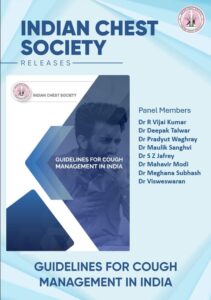Coimbatore, Tamil Nadu, India
In response to the growing concerns surrounding the COVID-19 vaccine, the esteemed pulmonology team at Sri Ramakrishna Hospital has taken proactive steps to address and alleviate public fears. The experts also aim to educate the community on crucial triggers for asthma and other respiratory conditions, emphasizing both indoor and outdoor factors.
Every year World Asthma Day is celebrated on second Tuesday of the May. This year it was celebrated on 7th May, 2024. This day is dedicated to throw light on the issues concerning asthma and lung health that is generally compromised due to several internal and external factors. While aiming to raise awareness and provide insights, the expert pulmonologists at Sri Ramakrishna Hospital also addressed the fears related to the Covid vaccine that has been on the rise lately.
In recent days, we have been hearing several theories and misconceptions about the Covid vaccine causing hesitancy in people. This widespread news has created a lot of tension and confusion.
Vaccines are often known to prevent a person from getting infected by a certain organisms like virus or bacteria. But unfortunately when the person gets infected the severity can be reduced. This was clearly evident in the case of COVID, especially during the second phase when most of the vaccinated people did not experience any major symptoms or complications when compared to people who have not been vaccinated.
It is important to understand that every vaccine has its own pros and cons. COVID vaccine was developed by research within a short period of time and was able to deliver remarkable results in several individuals while few people have faced few complications. In case there are any concerns regarding the vaccine or one’s health related to it, choose to talk to an experienced specialist to seek professional advice on the concerns.
Similarly one of the common concerns in recent days is asthma. People often ignore the triggers of asthma that might cause flare ups. The asthma triggers can be both indoor and outdoor.
Asthma is a chronic life condition that affects several people worldwide. It requires prompt medical treatment to be managed effectively without any issues.
When it comes to indoor triggers the factors can include:
- Pet fur: Most of us have pets and pet fur can trigger asthma.
- Smoke from incense sticks: Though this may not be a trigger in all asthma patients most of them may have flare ups once the smoke is inhaled.
- Burning mosquito coils: Certain chemicals found in the coils can be the reason for asthma flares.
- Air quality inside the home: At times air quality index inside the homes is affected by several factors leading to an asthma trigger.
- Cigarette smoke: Cigarette smoke has several chemical components that are extremely dangerous for asthma patients and is known to cause major flare ups.
- House dust mites
- Cockroaches
When it comes to outdoor triggers it can include:
- Air pollution & Air quality: Industrial cities often experience poor outdoor air quality due to hazardous smoke emitted from industries, vehicles, and others which can affect the air quality leading to asthma triggers.
- Pollen grains
- Dust: Dust due to construction and other outdoor activities are known to contribute to asthma flare ups.
Although both indoor and outdoor factors trigger asthma and also other serious lung conditions like COPD, ILD, outdoor triggers are beyond control and cannot be avoided in many circumstances, while indoor triggers can be highly controlled and avoided. While being outdoors it is important to follow certain steps like using a mask or avoiding traveling through highly polluted areas to avoid asthma flare ups
The Department of Pulmonology at Sri Ramakrishna Hospital is committed to provide exceptional care for respiratory disorders, while offering advanced diagnostic procedures, personalized treatment plans, and continuous patient education to manage and prevent respiratory issues effectively.
Asthma is a growing concern in the world. With certain efforts and precautionary steps one can always manage asthma effectively.
–Press release




